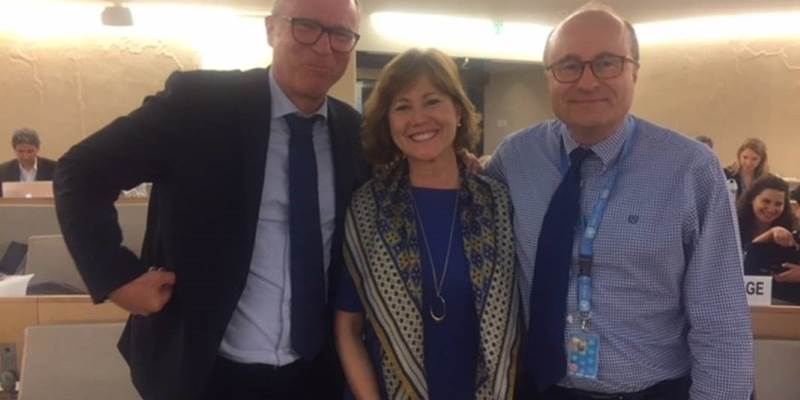The Human Rights Council (HRC) holds no fewer than three regular sessions each year, for a total of at least ten weeks. The summer session, which normally takes place at the end of June, has traditionally had a particular focus on gender equality.
This year’s summer session saw a number of initiatives aiming to strengthen the implementation of women and girls’ human rights, including resolutions on violence against women and girls in digital contexts, discrimination against women at the workplace, as well as a resolution on the elimination of female genital mutilation (FGM).
Throughout the negotiations, Norway stressed in particular the need to ensure that all women and girls have access to sexual and reproductive health and rights (SRHR), including comprehensive sexuality education (CSE).
Click here to read Norway’s statements to the 38th session of the HRC.
The 38th HRC session also saw the introduction of a new resolution on the prevention of human rights violations. The resolution, which was tabled by Norway, Switzerland, Colombia, and Sierra Leone, calls for the convening of two intersessional seminars on the contribution that the Council can make to prevent human rights violations. Twenty-eight of the Council’s members voted to adopt the resolution. Eight states abstained, while nine voted against the resolution. The resolution represents an important step forward in Norway’s efforts to enhance the focus on prevention of human rights abuses.
In order to improve access to remedies for victims of human rights-related abuses, Norway also introduced, for the third time, a resolution on business and human rights, together with Russia, Argentina and Ghana. The resolution, which was adopted by consensus, recognizes that the implementation of the Guiding Principles on Business and Human Rights includes implementation of the access to remedy pillar, and encourages states to take appropriate steps to improve and encourage corporate accountability and access to remedy for victims of business-related human rights abuses.
The 38th session of the HRC also addressed human rights on the internet, civil society space, human rights in the context of HIV/AIDS, peaceful protests, as well as the human rights situation in Belarus, Syria and Eritrea.
Click here for more information about the 38th session of the HRC.
